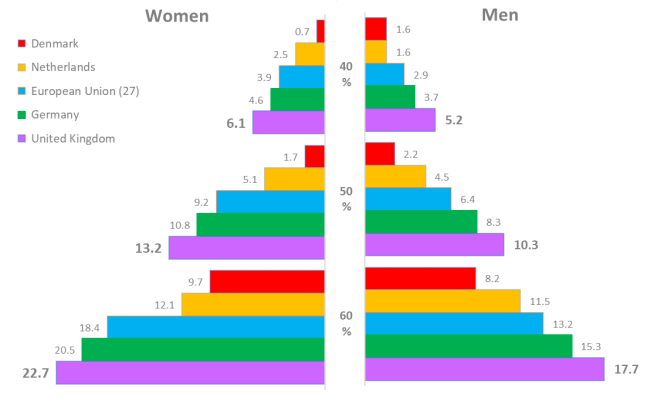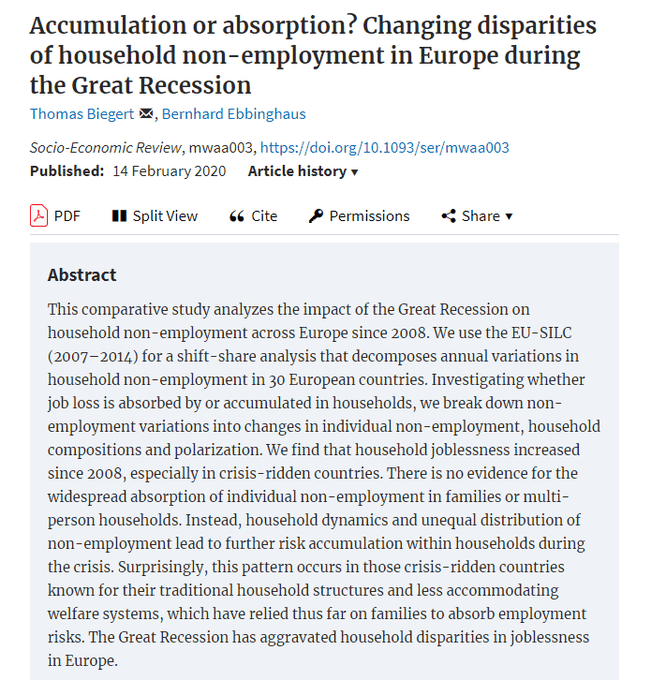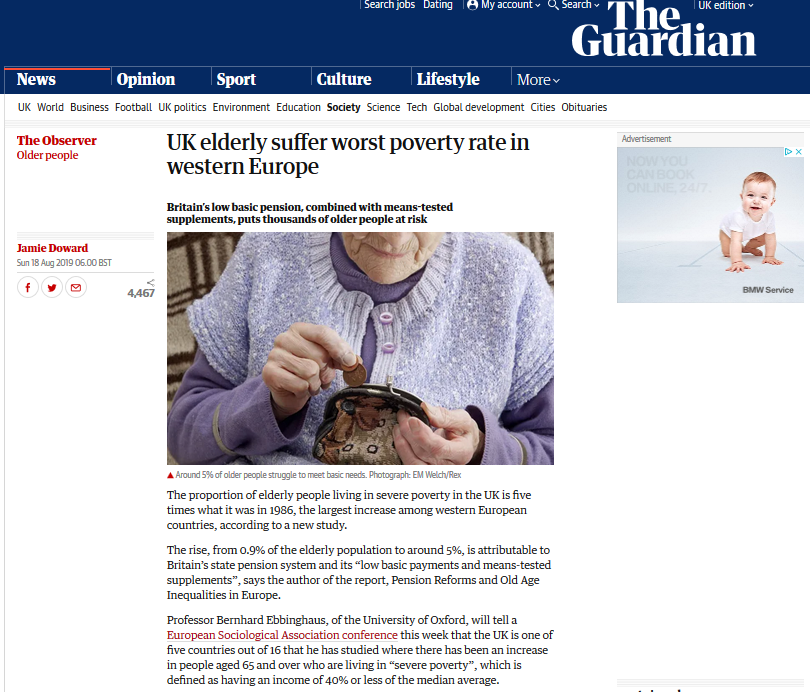While the sustainability of pension systems facing demographic ageing has been widely discussed, the adequacy of retirement income has often been neglected in current debate. However, considerable poverty and income inequality in old age exists across Europe. Using recent EU‐SILC data (2017/18), the comparative analysis of poverty rates and income inequality in old age shows important cross‐national variations that need to be seen in context of market‐related inequalities but also the specific pension system. Beveridge basic security is not always capable of effectively reducing poverty despite the explicit goal to do so. In addition, private funded pensions may generate social inequality. Some contributory Bismarckian systems are better suited to reduce poverty, but given their focus on status maintenance also reproduce inequality. Poverty rates are low due to encompassing basic pensions in Dutch and some Nordic multipillar systems and in core Central and Eastern European countries. Bismarckian pensions such as in Germany are generating some inequality and medium level of poverty, while France and some Southern European countries perform better on poverty but reproduce larger inequalities. Beveridge systems such as in the United Kingdom and Switzerland with rather meagre basic multipillar systems have relatively medium to high poverty risks. In addition, the Baltic countries and new EU member states in the periphery have the highest poverty rates across Europe. The analysis shows that the minimum income provision of public pension systems matters most for poverty risks, while the overall pension architecture has an impact on reproducing inequality in old age acquired during working life.
Ebbinghaus, Bernhard (2021) “Inequalities and poverty risks in old age across Europe: The double‐edged income effect of pension systems”, Social Policy & Administration, 55(3): 440–455 (open access). https://onlinelibrary.wiley.com/doi/10.1111/spol.12683
Part of a special issue: Inequalities in pension and retirement: Life‐courses and pension systems in comparative perspective, Social Policy & Administration, 55(3), May 2021, edited by Kati Kuitto, Susan Kuivalainen, and Katja Möhring. https://onlinelibrary.wiley.com/toc/14679515/2021/55/3







